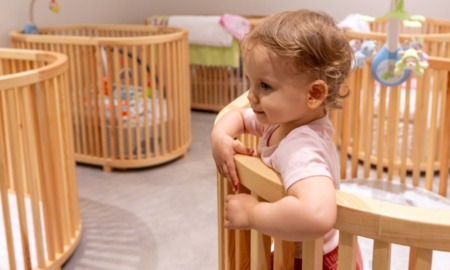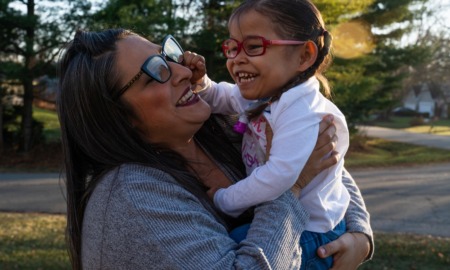All posts tagged "Child Care and Development"
-

 486From the Field
486From the FieldSchools and communities can help children bounce back after distressing disasters like the LA wildfires
Research shows that prolonged school closures can significantly affect children’s learning and mental health.
-

 520News
520NewsExpanding the child tax credit has some Republican support. Now what?
Many lawmakers want to expand the credit, a longtime Democratic priority.
-

 520News
520NewsUnsanitary practices persist at baby formula factory whose shutdown led to mass shortages, workers say
Shortcuts are taken when cleaning manufacturing equipment, repairing leaks and testing for dangerous microbes.
-

 794News
794NewsHead Start is turning 60. The federal child care program may not make it to 61
Providers operating on ‘razor-thin margins’ worry about possible deep cuts from the Trump administration.
-

 535► Newsmakers
535► NewsmakersEvery Hour Counts adds 14 new members
This brings the network’s total membership to 40 communities across more than 20 states.
-

 725Opinion
725OpinionUsing different words to find common ground
Thriving. Development. Learning. Education. Which one of these concepts is not like the other?
-

 758News
758NewsLet’s talk: Teachers pushed to converse more with youngest kids
States are using talk pedometers and conversation coaches to develop young brains.
-

 828Opinion
828OpinionIt’s a beautiful day in the ecosystem
Mister Rogers showed young children how to wonder. His principles work with all ages.
-

 983News
983NewsStudent well-being, school choice, higher ed top governors’ priorities for 2025
Governors remained committed to investing in public education but few addressed declining student achievement.
-

 1.4KNews
1.4KNewsFor teens with disabilities, transition to adulthood varies widely by school and state
Employment outcomes for students with disabilities are terrible in comparison to their nondisabled peers.
-

 1.0KEditorial
1.0KEditorialWhen youth thrive, we all thrive
In these challenging times, Youth Today is making a new, bolder commitment.
-

 568Opinion
568OpinionParents can soon use QR codes to reveal heavy metal content in baby food
How many products exceed FDA recommendations? There's no safe level of heavy metal ingestion.
-

 565► Reports
565► ReportsFragile beginnings: Children face unique vulnerabilities to environmental hazards at every stage of life
This brief discusses the unique vulnerabilities of children to environmental hazards.
-

 697News
697News1 in 5 child care workers is an immigrant. Trump’s deportations and raids have many terrified
Many staff and children aren’t showing up as federal crackdown on immigration ramps up.
-

 755News
755NewsMoms to Trump: We want relief on child care costs
A new national campaign encourages Trump to keep and expand the child tax credit.
-

 1.1KOpinion
1.1KOpinionParents have way more influence than they realize in shaping their children’s success
Parents with academically unmotivated and disengaged kids are often at their wits’ end.
-

 611News
611NewsParents of premature babies struggle to get help their children are entitled to
Few families with premature babies receive the early intervention services they are eligible for.
-

 2.2KNews
2.2KNewsTrump’s ‘pause’ on federal funds: It has not been rescinded. Are early learning & nutrition programs in danger?
Programs serving women and children would be hit particularly hard by a funding pause.
-

 472► Reports
472► ReportsA logic model to support the study of local child care subsidy payment policies and practices
A guide to support examining child care subsidy payment policies at the local level.
-

 630News
630NewsFive big obstacles to opening child care facilities in rural Illinois
About 60% of rural Americans live in child care deserts.


























